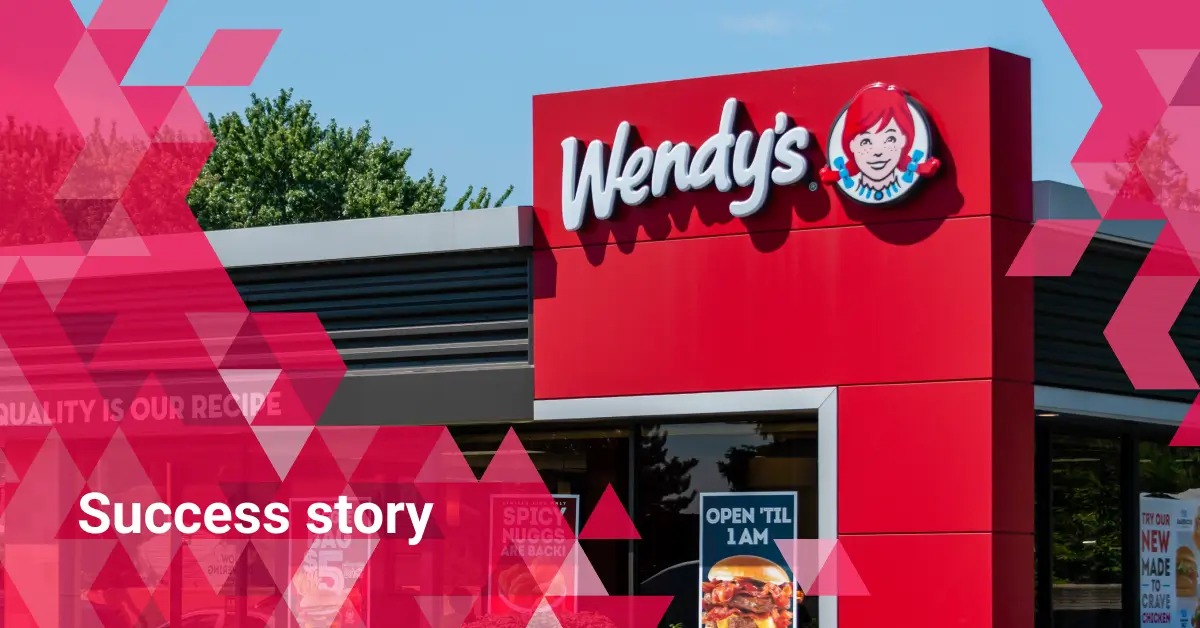Why frontline employee satisfaction is a top business priority in 2025

Tony Hsieh, the founder of Zappos, was at a Skechers sales conference and after a night of bar-hopping with other attendees, they headed up to the hotel room to order some food.
One of them tried to order a pizza from room service, but the hotel didn’t deliver hot food after 11:00 PM and it was way past that.
But then, they decided to call Zappos to try to order a large pepperoni pizza.
They explained to the Zappos rep the entire situation and wondered if there is anything Zappos can do about it.
The Zappos rep put them on hold and returned two minutes later, listing the five closest places to their hotel room that were still open and delivering pizzas at the time.
It’s a whimsical story, but it shows you how empowering your frontline staff enables them to do what’s best (and right) for your brand.
And the person from Skechers that ended up eating the large pepperoni? She is now a lifetime customer of Zappos. And all of that is thanks to an employee who directly interacted with a potential customer and provided excellent customer service.
Frontline workers definition: “Employees who directly interact with customers.”
So let’s see how you can empower these customer-facing workers, so they can deliver great service.
1. Satisfied Frontline Employees Create Satisfied Customers

Satisfied employees produce satisfied customers.
Businesses that focus their efforts on their frontline staff are investing in the people who are providing customer service and who are actively turning leads into customers. It’s important to keep frontline employees happy because:
- They become happier in the workplace which leads to better customer service
- They become more productive which increases the profitability of the company
- They take better care of the customer, which produces a better customer experience and improves customer loyalty.
2. Your Frontline Staff Members Are the Face of Your Company
Your frontline employees are the face of your company. This means that the actions of your frontline employees reflects directly on your company’s vision, mission, culture, and values. So it’s more important than ever to make sure these workers are engaged and enthusiastic at work.
Watch How 1 Hotels Uses an Employee App to Engaged with Their Staff
When we think about Amazon’s impeccable customer service and fast delivery times, we don’t make that correlation because it was written in a boardroom. We feel like that because tens of thousands of frontline workers delivered our orders on time.
When you make an effort to engage with your frontline staff, you empower them to be their best each and every day.
3. Frontline Staff Knows and Understands Your Customers’ Pain Points
There is an old story of how Napoleon used to receive his battle reports. He would ask an infantryman to come to his tent and tell him what he saw on the battlefield. Napoleon did this because the infantrymen were on the frontlines, and they knew the terrain and the situation the best because they saw it with their own eyes.
We no longer live in those times, but we can still find insights in those lessons.
Frontline employees interact with customers every single day and they have first-hand insights from these interactions.
Polls and surveys are fine, but customers can’t always articulate what they truly want, and their behavior can be quite different from what they state in surveys.
The frontline workers, who by definition are the employees who directly deal with the customers, see their behavior every single day and have valuable data and insights to provide.
Since your frontline employees know your customers the best, listening to their voices and acting upon their feedback gives your business a massive advantage.
4. Empowering Frontline Staff Creates a Bottom-up Culture
Long gone are the days of the old top-down style management where the most important attribute of an employee was the ability to follow orders.
Today’s workplace requires creativity, fast decision-making, and innovation from employees, and you can’t accomplish that by managing frontline employees in a top-down only culture.
That’s why a bottom-up culture is essential in today’s businesses.
A bottom-up culture revolves around the inclusion of employee ideas, insights, and perspectives (perceptions) to make the most informed decisions.
Having multiple perspectives on how you can achieve your company’s goals is critical to the success of your business.
If you want to see what that looks like in practice, take a look at how this Southwest flight attendant delivers her PA.
5. Creating an Empowering Work Environment Results in Greater Job Satisfaction and Lower Turnover Rates
The rest are either passively disengaged or actively disengaged (meaning they are actively working against the company’s well-being).
But it’s not just engagement— employees will also eventually leave the company because of bad managers.
When frontline staff is disengaged at work, it affects:
- Absenteeism
- Performance
- Customer ratings
- Quality
- Profit
By creating an empowering work environment where your frontline staff have autonomy, mastery, and purpose, they will:
- Stay with the company longer
- Improve their mental health and well-being
- Boost their performance
- Provide better customer care, quality, and service
- Increase the company’s profits
Most Frequently Asked Questions
Why are frontline employees important?
- Satisfied Frontline Employees Create Satisfied Customers
- Your Frontline Staff Members Are the Face of Your Company
- Frontline Staff Knows and Understands Your Customers’ Pain Points
- Empowering Frontline Staff Creates a Bottom-up Culture
- Creating an Empowering Work Environment Results in Greater Job Satisfaction and Lower Turnover Rates
What are frontline workers?
Frontline workers are employees who directly interact with customers.
About the author
Cristian Grossmann
CEO and Co-Founder, Beekeeper
Cris is CEO and Co-Founder of Beekeeper, an award-winning digital workplace app that digitizes the non-desk workforce in 137+ countries by connecting operational systems and communication channels within one intuitive platform. Beekeeper helps companies increase performance and productivity, enhance employee engagement, reduce turnover costs, and elevate corporate culture. Prior to founding Beekeeper, Cris worked for Accenture on high profile international projects in the field of IT Strategy for the financial and public sectors. Cris studied Chemical Engineering and got his Ph.D. in Electrical Engineering, both at ETH Zurich. Before moving to beautiful Zurich, Cris was born and raised in an entrepreneurial Swiss-Mexican family in Mexico City.








